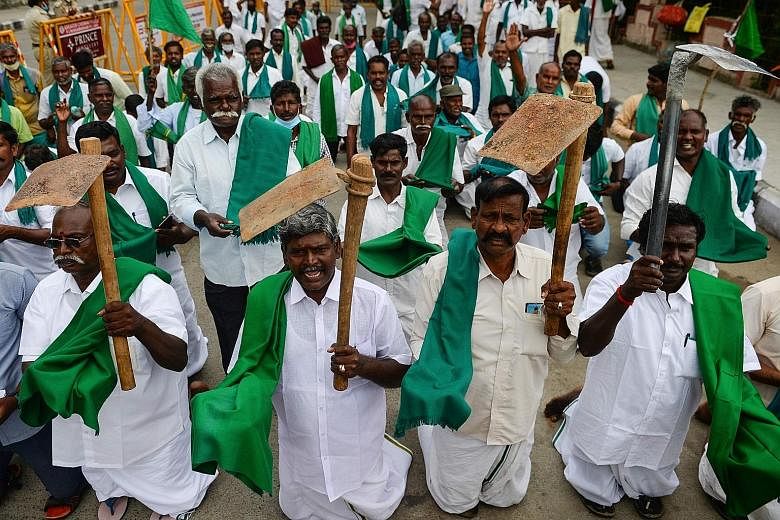Protests by India's farmers, against moves to reform and deregulate the agriculture sector, are reverberating among sections of the Indian diaspora, especially in North America and the United Kingdom.
India's relations with Canada have turned frosty, with New Delhi saying concern expressed by Canadian Prime Minister Justin Trudeau is "unacceptable interference". New Delhi is also upset with Canada's Defence Minister Harjit Singh Sajjan, a Sikh-Canadian, for tweeting about "peaceful protesters being brutalised in India".
In the UK, 36 MPs wrote to Foreign Secretary Dominic Raab asking him to raise the issue with Prime Minister Narendra Modi's government.
Labour Party MP Tanmanjeet Singh Dhesi said: "Many British Sikhs and Punjabis… are directly affected by family members and ancestral land in Punjab."
Indian security agencies are watching the insertion of the Khalistan issue into the protests, especially in the United States.
The Khalistan separatist movement, which sought an independent Punjab in the 1980s and 1990s, triggered a 12-year conflict with hijackings, stabbings, shootings and bombings taking 21,000 lives.
At one of several protests across Canada and the US this month, a Khalistan flag was draped over a statue of Mahatma Gandhi in front of India's Embassy in Washington DC on Dec 12.
The embassy condemned the "mischievous act by hooligans masquerading as protesters".
Save Our Farmers, the organisation which held the protest, said Gandhi was "not considered a hero by many communities".
New York-based lawyer Gurpatwant Singh Pannu, who runs an organisation called Sikhs For Justice and is labelled a terrorist by India but not by the US, has written to Pakistan's Prime Minister Imran Khan and China's President Xi Jinping pledging Sikh support.
But the Khalistan agenda, while raising red flags, is unlikely to find traction in India, analysts say.
"It is now largely a diaspora issue," said Dr Aparna Pande, research fellow and director of the Initiative on the Future of India and South Asia, at the Hudson Institute in Washington.
"When you have a large and diverse diaspora like India does, that participates in domestic politics… and is deeply integrated in those countries, it can be a positive for bilateral relations but can also create challenges because then leaders in other countries will comment on Indian internal politics."
Also, the protesting farmers are not just Sikhs and not just from Punjab. And there are bad memories of the conflict. Noted a report published in September by the Canadian think-tank Macdonald-Laurier Institute: "Most of the victims, whether civilian, police or separatist fighters, were Sikh."
The report, Khalistan: A Project Of Pakistan, also notes Pakistan's covert support for the movement.
SEE OPINION

